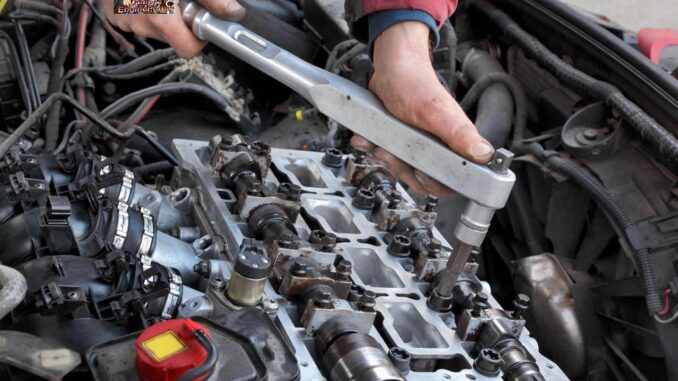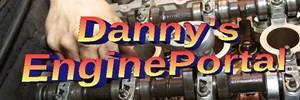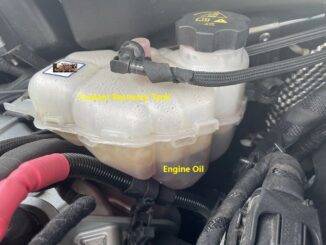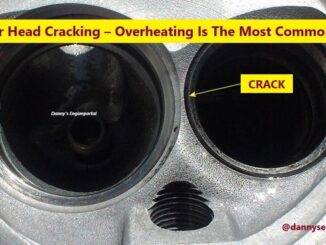
Engine rebuilding and remanufacturing, learn the difference.
So, what is the real difference between them, and why would you choose one over the other.
Typically a rebuilt engine will have a much shorter life, than a remanufactured unit. Because, the process is much less precise, and therefore, less predictable.
Let’s look at a few of the key differences between, engine rebuilding and remanufacturing.
Engine Rebuilding Is Done, Mostly In local Shops
So, each job relies on the judgment and skill, of the individual mechanic. Since the mechanic, usually only replaces broken or worn parts, you are taking some chances. If reused components subsequently fail or break, diagnosis and repair, can be very costly. Engine rebuilding can cost less than replacing it. Most of the savings comes from, the labor you put into tearing down the engine, and then reassembling.
The tools required to rebuild an engine are minimal.
Normal hand tools, some feeler gauges, a torque wrench, a ring expander and ring compressor. Also, your local machine shop, should be able to do any major work required. Worn cylinders will have to be bored, to accept oversize pistons and rings.
You may be lucky and only have minimal wear. As a result, you can run a glaze breaker down the bores, and just re-ring it. But, if you don’t have any valve and seat refacing equipment, you’ll have to send that out. You will need to send out jobs like, head resurfacing, line boring, crank refinishing, etc. That’s why, you should find a reputable local machine shop, that you can use for this type of work.
Engine Remanufacturing, Is A Factory Process
It starts with a sound, undamaged engine core. Then, is carefully cleaned, conditioned and machined, to OEM tolerance specifications. All wearable components are replaced, with new parts including, pistons, rings, valves, lifters, etc. Remanufacturing is similar to building a new engine, and includes standardized procedures. Also, with quality controls and final factory testing, before shipping.
The Following Is A List Of Common Questions And Answers, To Help You Make That Important Decision:
Typical symptoms, for having your engine rebuilt:
- Excessive smoke from exhaust pipe
- Excessive oil consumption
- Knocking or tapping sounds
- Low oil pressure
- Low compression
- Coolant mixing in oil
- Oil getting into the air cleaner and/or radiator
Typical causes, for having your engine rebuilt.
Normal mileage wear and tear, lubrication problems, excessive overheating.
How do I find out what can be done, to correct the problem.
Take your car to a reputable service shop, dealer or installation center and get a second opinion. Not all engine problems, call for engine replacement. Often the problems are not serious and may only require, relatively minor repair or maintenance.
If the problems are serious, what are the alternatives to engine rebuilding?
It all depends on whether you plan to keep, or sell your car. Because, continued operation in this instance, will require engine rebuilding or replacement.
The basic engine choices are:
- Rebuild the same engine
- Replace it with a locally rebuilt engine
- Install a factory remanufactured engine
- Install a new engine
New engines are not always available, for all makes models. And, are much more costly, than remanufactured units.
Should I invest in an engine or buy a new car?
That depends on your financial situation, the overall condition of the car and your personal preferences. Engine replacement, is more affordable than many people realize. And, sure it’s a lot more fun buying a new car. But, people need to find the balance between, fun and practicality.
As a rule, replacing the engine, makes good economic sense. But, only if the rest of the car, is in relatively good condition. If it does not make economic sense replacing the engine, then you should probably get a new car.
Do I have to go to a dealer for engine replacement?
No. While dealers generally install quality remanufactured engines, the cost is usually high.
So, a specialized engine replacement shop, can carry the same or better quality engines. And, will almost always give a better overall value, in terms of quality, service and price.
What are the typical costs and savings?
Installation of a quality remanufactured engine, will usually cost about 10-15% of a typical new car cost.
How do you know if the engine is, rebuilt or remanufactured?
Be sure to ask the installer, before you commit. Warranty for a rebuilt engine is normally provided, only by the local installer. And, is usually short in duration. A remanufactured engine, should carry a nationwide or regional guarantee. And, is usually backed by the engine maker, for a longer period.
Are all remanufactured engines, built to the same quality levels?
No. As for every product, some manufacturers are better than others. Only a relatively small number, are fully certified by original car makers.
For example, of dozens of suppliers in the US, only five are fully Ford certified. And, this is under Ford Motor Company’s stringent Q-1 program.
How important is the installation process?
For a good quality remanufactured engine, the chance of a defect is well under 5%. The risk of problems can increase to over 50%, however, with improper installation. Furthermore, replacing an engine, is a skillful and complex task. As a result, requiring knowledgeable and experienced people. So, be sure to check on the experience of the installer, before investing in a replacement engine.
How long will the replacement engine last?
A quality remanufactured engine, with proper maintenance, is capable of lasting as long as a new engine. Rebuilt engines or lesser quality remanufactured engines, are less predictable.
What warranty period should I get?
A minimum to look for is, 12 months/12,000 miles. But, some suppliers are providing, 24 months/24,000 miles or longer.
Above all, no matter what you choose to do with your engine, it does not make your car new again. Because, the all the other parts, still have the same mileage on them.
Conclusion
So, this is important to consider. There usually is a correctable reason, for engine failure. So, make sure you find out why the original engine failed. And, then make the necessary corrections, so you do not have a repeat failure.
BY DANNY BENDER




